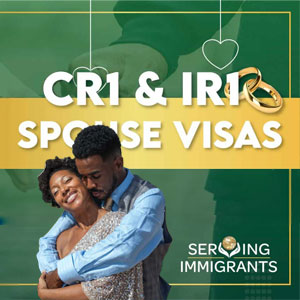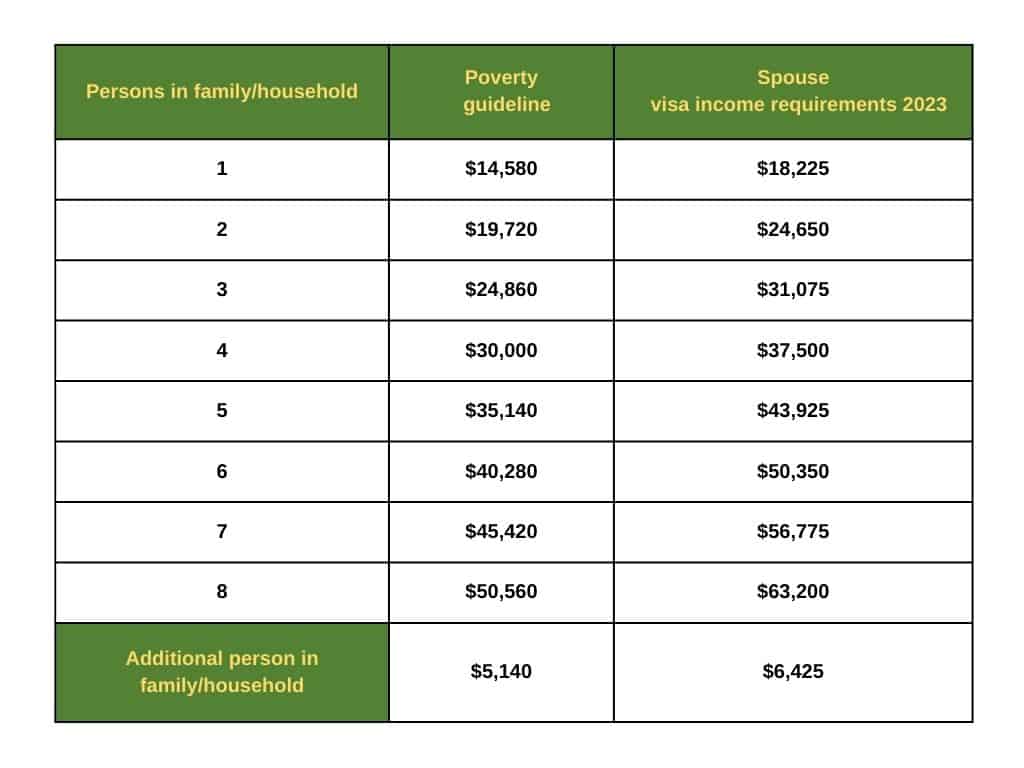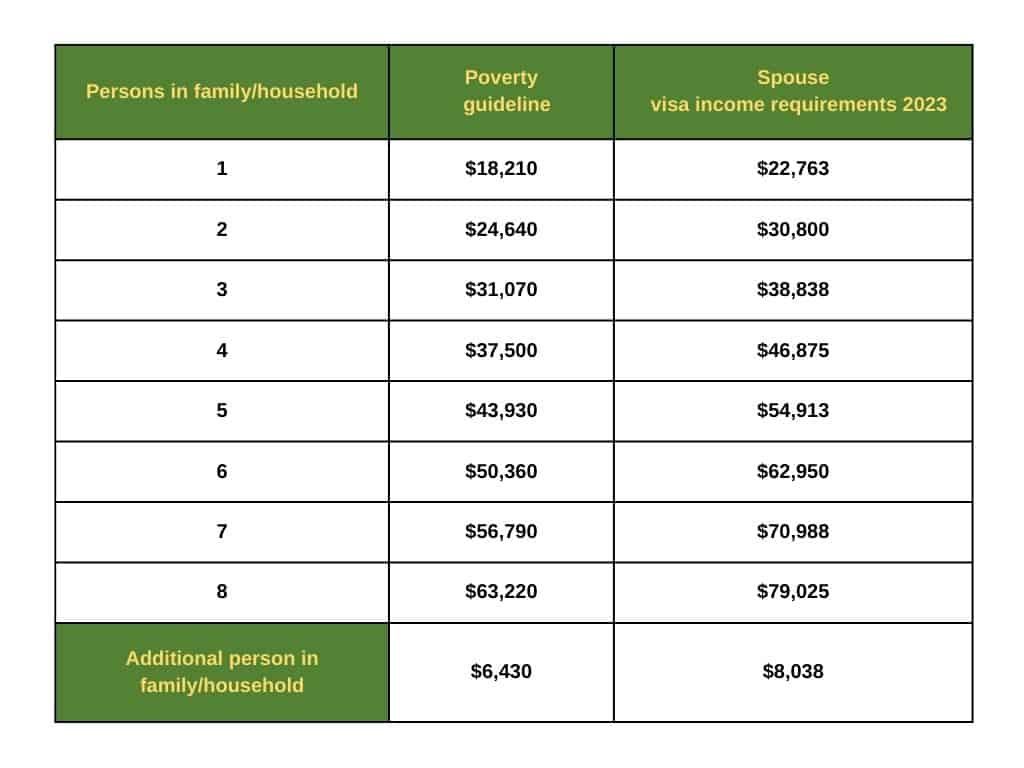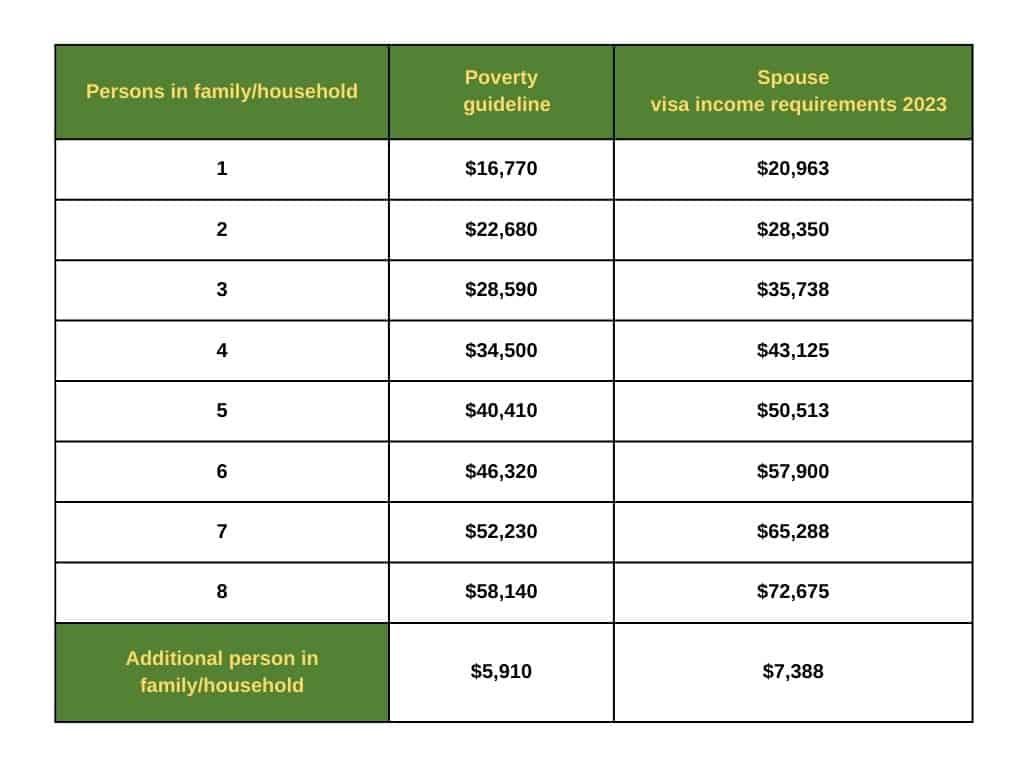
What Is A Spouse Visa?
A spouse or marriage visa in the United States is an immigration document that allows the husband or wife of a US citizen to live and work in the country. The IR1 and CR1 visas are the two types of spouse visas available in the United States.
Differences Between IR1 And CR1 Visas
The Immediate Relative (IR1) visa is for immigrant spouses who have been married for more than two years since entering the United States with an immigrant visa. Since the couple has already been married for a lengthy period, the immigrant spouse’s residence is unconditional and gets a Green Card for the next 10 years before, with the chance of renewal.
The Conditional Resident (CR1) visa is for immigrant spouses who have been married for less than two years when they enter the United States with their visa. With this marriage visa, the spouse can move to the United States on a conditional basis. They will need to stay married for at least two years. After this period, the visa holder must apply to remove conditions from their permanent resident card. They will then receive the IR1 visa, which lasts 10 years.
If either partner divorces the other in two years, the visa is no longer valid, and the USCIS will deport the foreign spouses if they do not return to their home country.
Can A Permanent Resident Request A Visa For His/Her Spouse?
Yes, through spousal sponsorship. A sponsor for the IR1 and CR1 marriage visas is mandatory since the sponsor must be an American citizen spouse with a foreign/immigrant partner. The sponsor must fill out the application and start the visa processing so they can live together.
If you started an IR1 or CR1 Visa process while being a lawful permanent resident (LPR), and later became an American citizen, you must upgrade the petition from family second preference (F2) to immediate relative (IR) by checking on the National Visa Center (NVC).
CR1 And IR1 requirements
Eligibility Criteria
- The immigrant and the U.S. citizen or resident must be married.
- The U.S. spouse must be a permanent resident or citizen of the United States and have a domicile within the country for the couple to live.
- The resident must be at least 18 years old.
Required Documents
- A valid passport that allows the immigrant spouse to enter the United States at least 6 months before the entry date.
- Affidavit of support depending on the sponsor. This affidavit may vary depending on the type of request and form, which are:
- I-864: This form is used by family or employment-based immigrants to explain they have adequate income and financial support, and will not depend on benefits or help from the U.S. government.
- I-864A: This form is filled out by a sponsor, who will promise to take care financially of the immigrant through a contract.
- I-864 EZ: The sponsor uses this form to demonstrate the immigrant has financial support and is likely not to receive financial support from the United States government.
- I-864W: This form is used to prove the applicant is exempt from filling out the I-864 Form.
- 2 2×2 photographs
- Civil documents. Depending on the case, these may need to be translated or certified.
- Medical examination forms.
IR1 & CR1 Visa Income Requirements 2023
The income requirements for CR1 and IR1 visas follows the same parameters of the form I-864. These vary depending on the HHS’s Office of the Assistant Secretary for Planning and Evaluation (ASPE)’s poverty guidelines, the region where the couple will reside (divided in Alaska, Hawaii, or any of the 48 contiguous states and the District of Columbia), and the number of family members in the household.
Alaska IR1 & CR1 visa income requirements
Hawaii IR1 & CR1 visa income requirements
How To Apply For An IR1/CR1 Visa?
- The sponsor must fill out the I130 form (Petition for Alien Relative) from the USCIS to start his/her spouse’s immigration process.
- Fill out the DS-261 form (Immigrant Visa and Alien Registration Application) at the Consular Electronic Application Center (CEAC) to establish how the State Department will communicate with the couple through the IR1/CR1 visa process.
- Pay the fees related to the visa application forms, translations, photocopying
- Take the required medical examinations
- Go to the interview with the local Embassy or Consulate.
What Is The Difference Between The K1 And CR1/IR1 Visas?
While both visa categories might be similar, the K1 fiancé(e) visa allows immigrants to travel safely to the United States for 90 days with the purpose of marrying.
On the other hand, the CR1/IR1 visas are specific for foreign citizens who have legally wedded an American citizen and want to live with their spouse in the United States.
Is It Possible To Get The U.s. Citizenship Through CR1 And IR1 Visas?
Yes, it is possible to apply for citizenship with a CR1 or IR1 visa. Both visas lead to the issuance of a green card, which allows the holder to live and work permanently in the United States. Once the foreign national has held a green card for 3 years through their marriage with a U.S. citizen, they may apply for citizenship through naturalization.
To be eligible for naturalization, the applicant must meet certain requirements, including being a lawful permanent resident for a certain time, demonstrating continuous presence in the United States, passing an U.S. civics and English Proficiency test, and demonstrating good moral character.
Serving Immigrants helps immigrants realize their American Dream by allowing immigrant/U.S. citizen couples to live happily ever after. Take the first step towards getting your spouse’s visa today by contacting our qualified team of marriage visa lawyers for a consultation!
Related Posts:

Attorney Magdalena Cuprys is a seasoned immigration lawyer based in Orlando and Coral Gables, Florida. With three languages under her belt and years of legal experience working with immigrants of all kinds, she brings considerable experience and insight to the field and works hard to explain immigration concepts, empower future citizens, and keep current and prospective immigrants up to date on US immigration law.
Connect with her firm, Serving Immigrants, to stay updated on the latest developments in United States immigration law and gain valuable insights needed to navigate the challenging legal landscape of immigration in Florida.
Call Us Now To Get Your Case Reviewed (305) 907-6151


